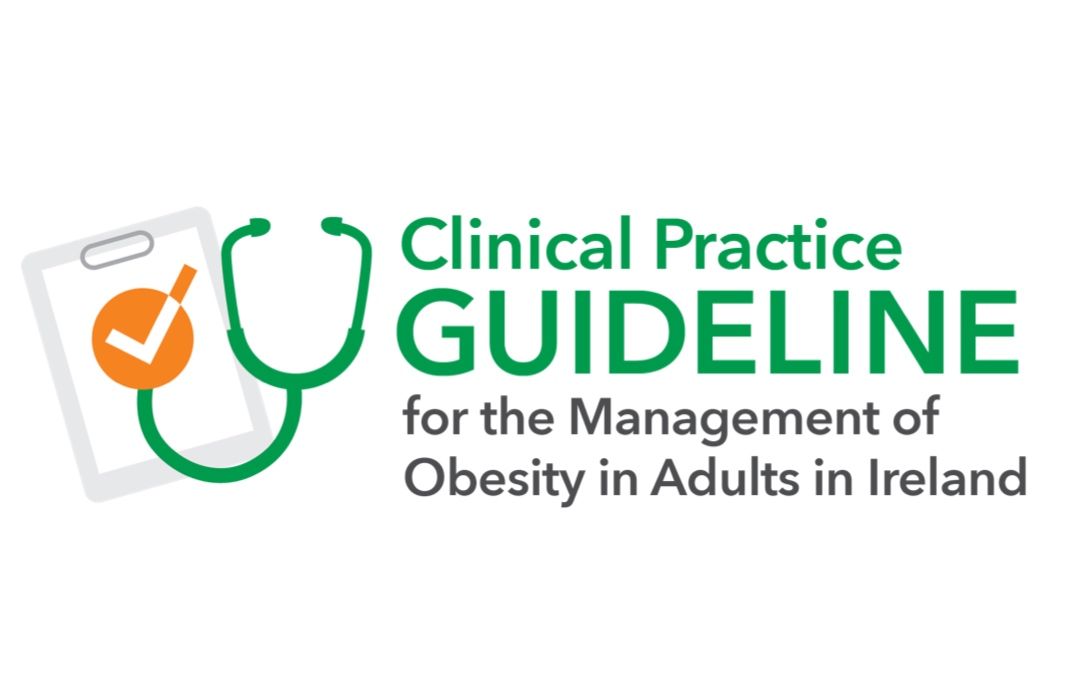New guidelines launched for obesity treatment in Ireland
Obesity care to focus more on health and quality of life
For more than one million people in Ireland who live with obesity, new treatment guidelines that redefine care have been launched today – with the support of doctors, patient groups and the HSE.
The guidelines follow the science – moving away from obesity being a ‘lifestyle illness’ or solely defined by weight – to recognising that obesity is a disease defined by health impairment and driven by complex biological, environmental and psychosocial factors.
Patients are set to benefit from a greater focus on a proven and broader range of medical treatments – and a drive to destigmatise the disease both among the public and healthcare professionals.
Ireland’s new Adult Clinical Practice Guidelines (CPGs) for obesity treatment are being published today by Association for the Study of Obesity on the Island of Ireland (ASOI) – working together with the Irish Coalition for People Living with Obesity (ICPO) and the HSE Obesity National Clinical Programme.
The CPGs are an adaptation of guidelines which Obesity Canada developed and published in 2020 – based on over 550,000 peer-reviewed evidence-informed articles – and are seen as the international benchmark for obesity treatment.
Ireland is leading the way as the first health system in Europe to adapt these Canadian guidelines,and health systems across the globe are expected to follow suit.
ASOI CPG Project Adaptation Coordinator and ASOI Chair Dr Cathy Breen said: “The adaptation of the Canadian CPGs has involved over 70 specialists from all over Ireland who have been working collaboratively, including academic and clinical researchers, anaesthetics, dietetics, endocrinology, epidemiology, general practice, midwifery, nursing, obstetrics, occupational therapy, patient representatives, physiotherapy, psychology, psychiatry, public health, pharmacists, respiratory physicians and surgeons. They have worked together to ensure the guidelines align well with the Irish Model of Care for Obesity and the way care is delivered in the Irish healthcare system.
“We have also partnered with patient voices through the ICPO, and at service delivery level with the HSE. So today all parties are signed up to follow and implement these guidelines and to reconsider how we treat obesity nationally.
“The guidelines will help healthcare professionals all over Ireland to address gaps in skills, increase their knowledge of evidence-based practice, and reduce bias and stigma in healthcare settings. The new Guidelines are underpinned by the same principles that we use for managing other chronic diseases and recommend care that moves far beyond simplistic approaches of ‘eat less, move more’, and instead really try to address the root drivers of obesity.”
HSE Clinical Lead for Obesity and Consultant Endocrinologist Prof Donal O’Shea said: “Adapting these Clinical Practice Guidelines in Ireland represents a turning point in the way we approach the management of obesity. The science has given us a much better understanding of obesity as a chronic disease. Public health measures that create healthier environments to prevent all chronic diseases including obesity are important, but we cannot rely on prevention alone. Treating the disease of obesity must also happen.
“These guidelines provide the framework for patients to have access to a broad range of care depending on their needs, including medical nutrition therapy, physical activity and physical rehabilitation interventions, psychological interventions, pharmacotherapy and bariatric surgery.
“The Model of Care now agreed by all parties must be resourced annually and fully implemented. To address health inequalities, we are calling for obesity to be put on the same footing as diabetes, heart disease and chronic lung disease within General Practices. It is also essential that access to treatments for obesity – both medication and bariatric surgery – is funded in the same way as for other chronic diseases and available based on need not means.”
Irish Coalition for People Living with Obesity (ICPO) Chairperson Susie Birney said: “In the past people who live with obesity have been shut out of receiving quality healthcare because of the biased, flawed misconceptions about what drives obesity and how we can improve health. Obesity has incorrectly been seen as the result of poor personal decisions, including within the health system and among health professionals.
“Now that we have these evidence-informed guidelines agreed at all levels we need to collectively apply and implement them. We also need a programme of education among healthcare professionals, and the public, to eliminate bias and stigma about obesity.”
A summary of the Clinical Practice Guidelines for Obesity Treatment in Ireland can be viewed here: www.asoi.info/guidelines
Further information
Ronan Cavanagh, Cavanagh Communications: (086) 317 9731 / ronan@cavanaghcommunications.ie

